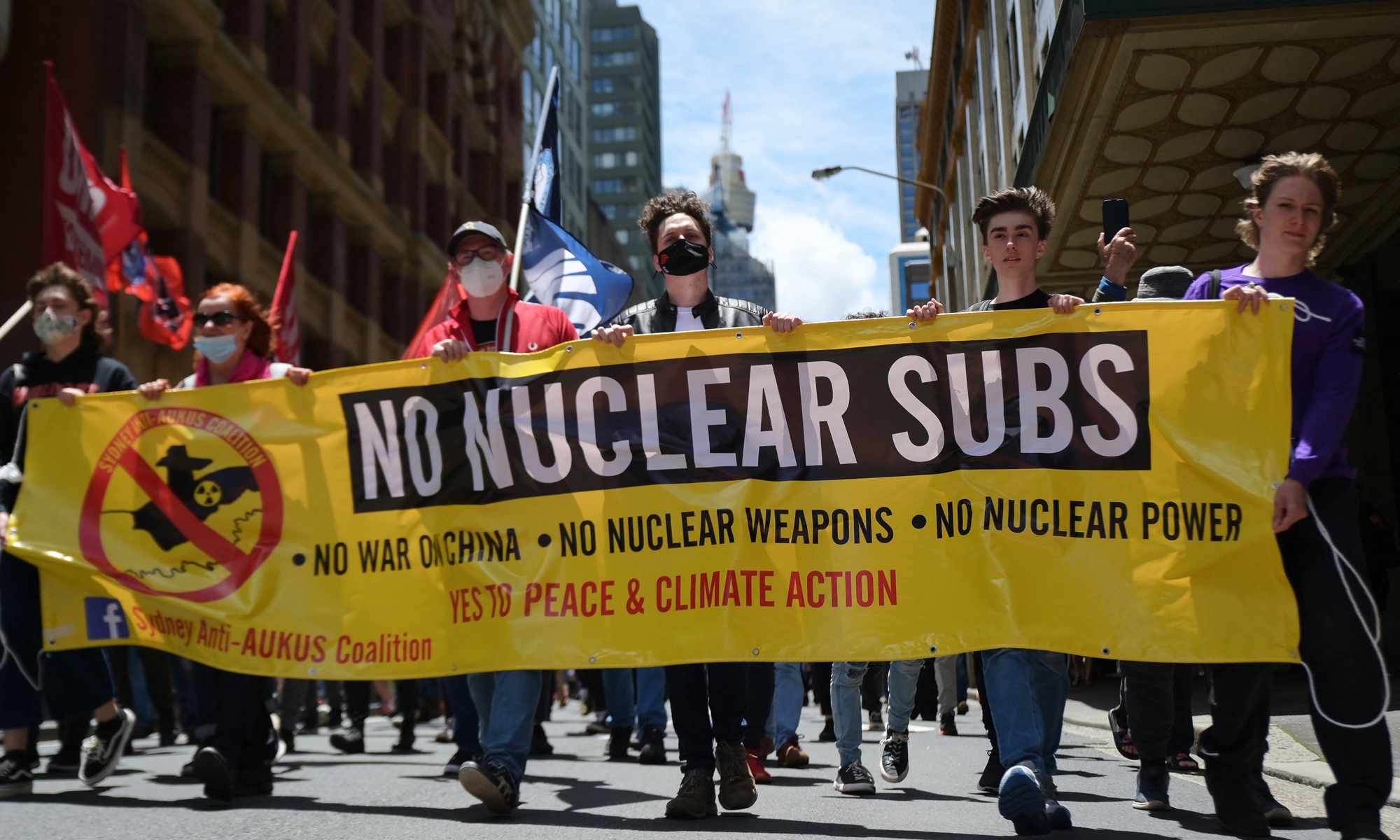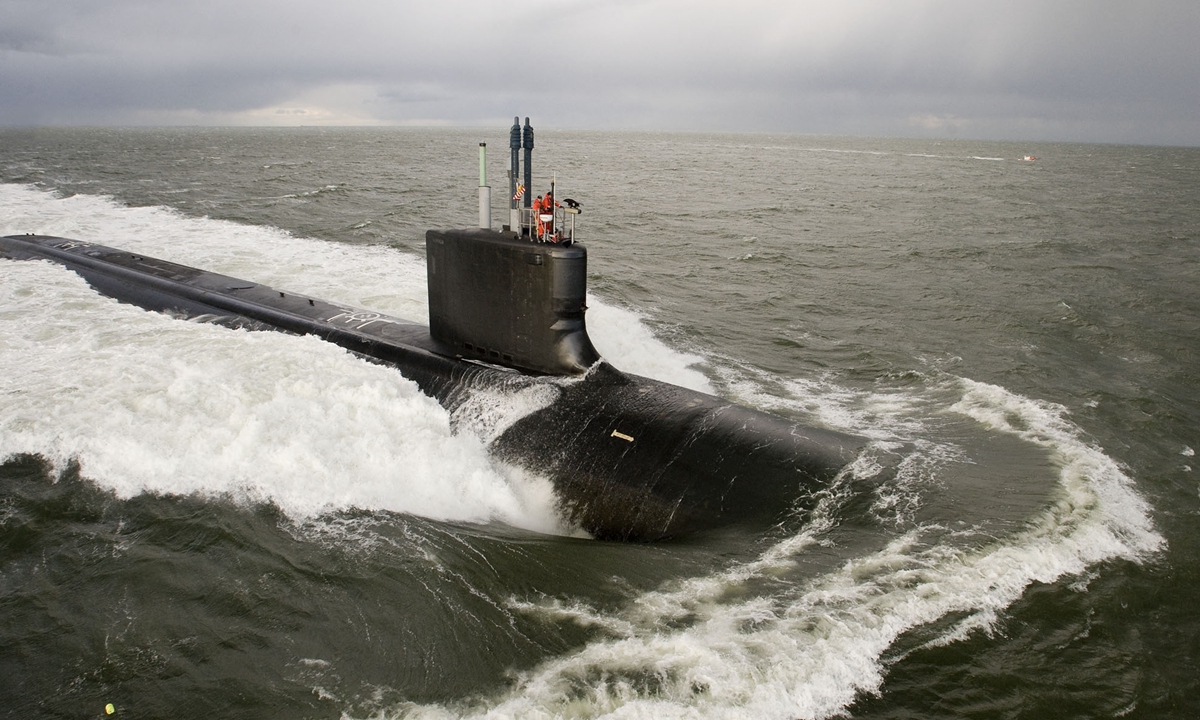2023年2月3日,华东师范大学澳大利亚研究中心主任陈弘接受《环球时报》英文版采访,谈AUKUS新动向。
AUKUS plan reportedly to be unveiled, but analysts remind Australia 'cautious of being utilized'

Members of the Sydney Anti-AUKUS Coalition (SAAC) participate in a protest in Sydney, Australia, on December 11, 2021 against the nuclear submarines deal among AUKUS members. Photo: AFP
The US, the UK and Australia will possibly unveil a nuclear submarine plan under the trilateral AUKUS when their leaders gather in Washington in mid-March, but a real fleet would take time of decade or longer to form, Chinese analysts said, reminding Australia to be cautious of being used as cannon fodder for US' strategic layout.
According to media reports, UK Prime Minister Rishi Sunak and his Australian counterpart, Anthony Albanese, are planning to go to Washington DC in mid-March potentially to unveil a proposal for Australia's nuclear submarine project, Bloomberg reported.
The three nations are sharing classified military capabilities to allow Australia to construct and deploy new nuclear-powered submarines in the Pacific region.
There are few available details about the plan, and Song Zhongping, a Chinese military expert and TV commentator, predicted the announcement to be rather vague.
The three sides of the AUKUS may discuss enhancing cooperation on military techniques, on joint operations in Asia-Pacific considering the US' strong push for Indo-Pacific Strategy, and on intelligence sharing, as the three are all members of Five Eyes, Song told the Global Times on Friday.
The US could sell its retired submarines to equip Australia while another possible approach is that US, under British assistance, constructs a modified version of Virginia-class submarines for Australia, Song explained. "But that would take a decade for eight to 10 submarines to be built and form a capable fleet."
Song pointed out that the US and the UK are more interested in, via the AUKUS, using Australia's military bases near its eastern coast. Through that, the US forces eye more flexibility beyond the Guam island in a war scenario.

A US Virginia-class attack submarine undergoes Bravo sea trials on November 26, 2009 in the Atlantic Ocean. Some analysts say that the nuclear submarines to be supplied to Australia under AUKUS deal could be modeled on the Virginia-class attack submarine. Photo: AFP
According to media reports, Australia is also expected to host the US, Japanese and Indian leaders for the next Quad leaders meeting in Sydney in June.
Though the Albanese administration has largely broken up with Morrison's hostility toward China, Canberra is still deeply involved in the US' China-targeted Indo-Pacific Strategy, observers said.
Chen Hong, president of the Chinese Association of Australian Studies and director of the Australian Studies Centre at East China Normal University, told the Global Times on Friday that Australia, if out of defense considerations, does not need nuclear submarines.
Albanese administration's proceeding of the AUKUS suggested Australia will continue to dip its finger in the South China Sea and the Taiwan Straits, Chen said.
Canberra hopes to maintain a delicate balance between trade and cultural connections with China while standing with the US in terms of security and geostrategy. Albanese has been playing well so far, but Chen warned such a balance would be increasingly difficult to maintain.
AUKUS, from day one, is a small clique serving US strategic interests. When the US confrontation with China escalates, Washington will definitely keep up the pressure on its allies and partners, Chen said.
Chinese Embassy to the UK also responded to the AUKUS progress on Friday, saying that the essence is to provoke military confrontation, which is pure Cold War mentality. It increased the risk of nuclear proliferation, aggravated arms race in the Asia-Pacific, and jeopardized regional peace and stability, which China is seriously concerned about and firmly opposes.
The embassy spokesperson said that China urges the UK, Australia and the US to abandon the Cold War mentality and zero-sum game, stop making small cliques, faithfully fulfill their international obligations, and do more things that are conducive to regional peace and stability.